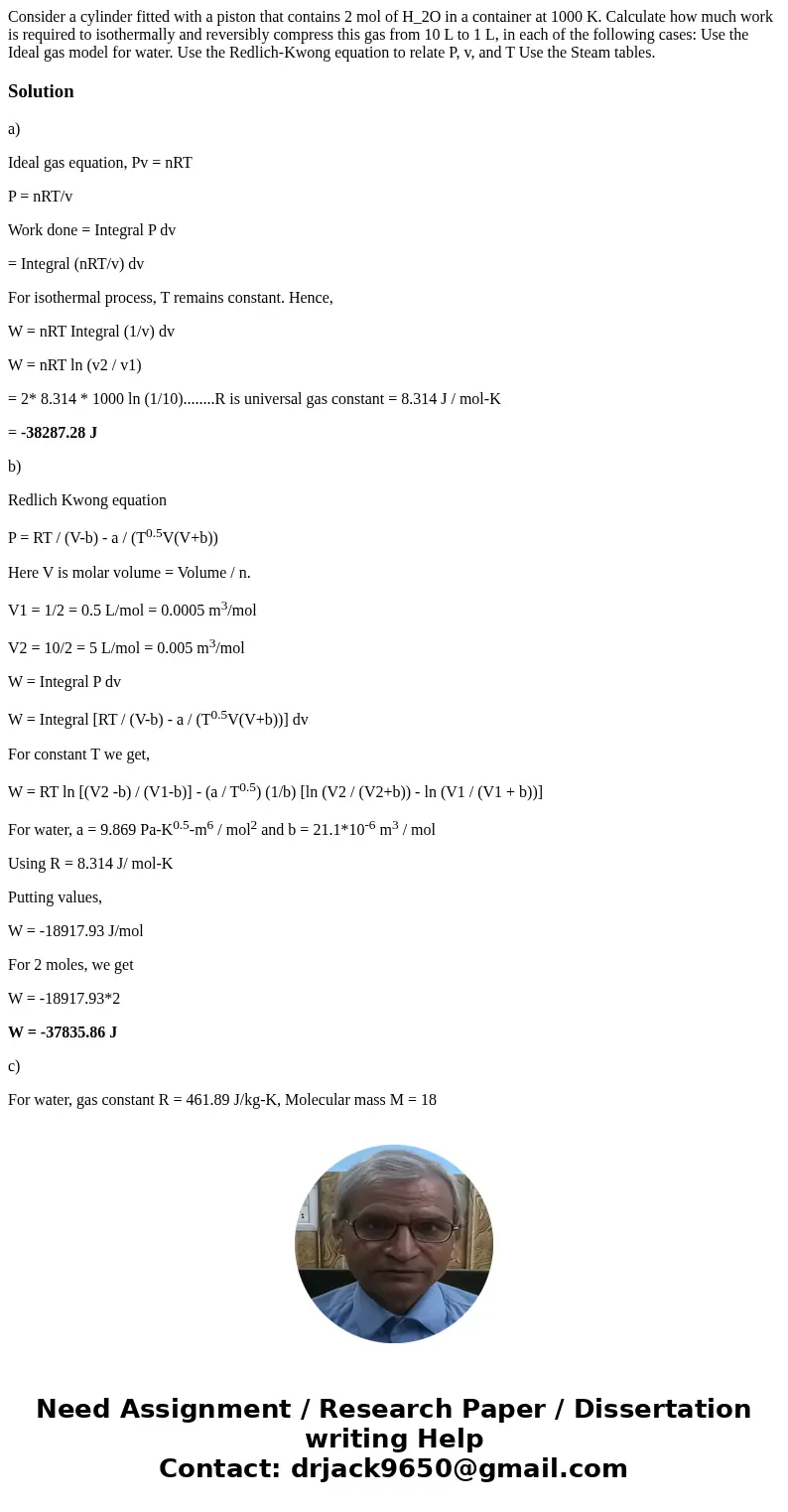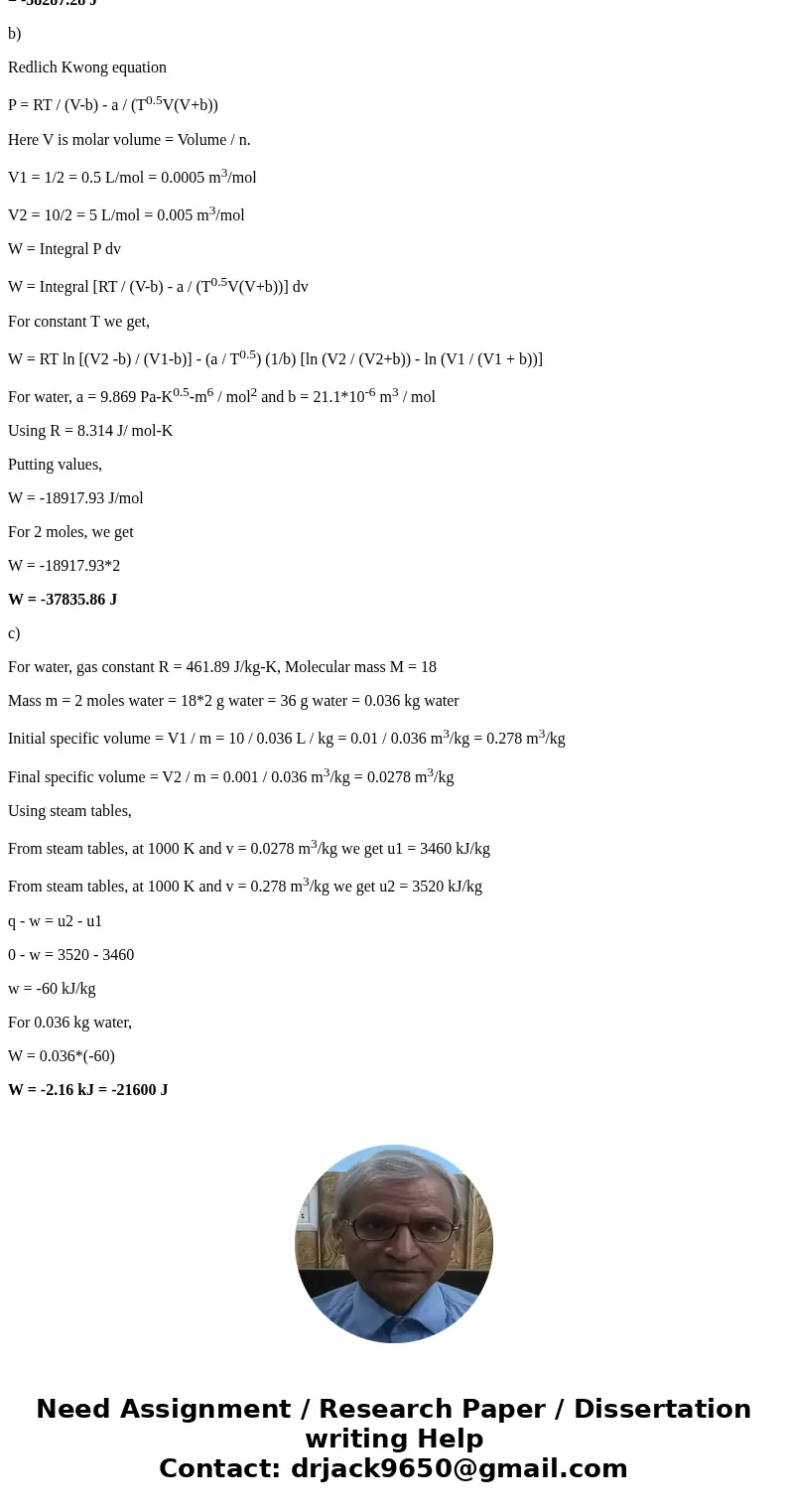Consider a cylinder fitted with a piston that contains 2 mol
Solution
a)
Ideal gas equation, Pv = nRT
P = nRT/v
Work done = Integral P dv
= Integral (nRT/v) dv
For isothermal process, T remains constant. Hence,
W = nRT Integral (1/v) dv
W = nRT ln (v2 / v1)
= 2* 8.314 * 1000 ln (1/10)........R is universal gas constant = 8.314 J / mol-K
= -38287.28 J
b)
Redlich Kwong equation
P = RT / (V-b) - a / (T0.5V(V+b))
Here V is molar volume = Volume / n.
V1 = 1/2 = 0.5 L/mol = 0.0005 m3/mol
V2 = 10/2 = 5 L/mol = 0.005 m3/mol
W = Integral P dv
W = Integral [RT / (V-b) - a / (T0.5V(V+b))] dv
For constant T we get,
W = RT ln [(V2 -b) / (V1-b)] - (a / T0.5) (1/b) [ln (V2 / (V2+b)) - ln (V1 / (V1 + b))]
For water, a = 9.869 Pa-K0.5-m6 / mol2 and b = 21.1*10-6 m3 / mol
Using R = 8.314 J/ mol-K
Putting values,
W = -18917.93 J/mol
For 2 moles, we get
W = -18917.93*2
W = -37835.86 J
c)
For water, gas constant R = 461.89 J/kg-K, Molecular mass M = 18
Mass m = 2 moles water = 18*2 g water = 36 g water = 0.036 kg water
Initial specific volume = V1 / m = 10 / 0.036 L / kg = 0.01 / 0.036 m3/kg = 0.278 m3/kg
Final specific volume = V2 / m = 0.001 / 0.036 m3/kg = 0.0278 m3/kg
Using steam tables,
From steam tables, at 1000 K and v = 0.0278 m3/kg we get u1 = 3460 kJ/kg
From steam tables, at 1000 K and v = 0.278 m3/kg we get u2 = 3520 kJ/kg
q - w = u2 - u1
0 - w = 3520 - 3460
w = -60 kJ/kg
For 0.036 kg water,
W = 0.036*(-60)
W = -2.16 kJ = -21600 J


 Homework Sourse
Homework Sourse